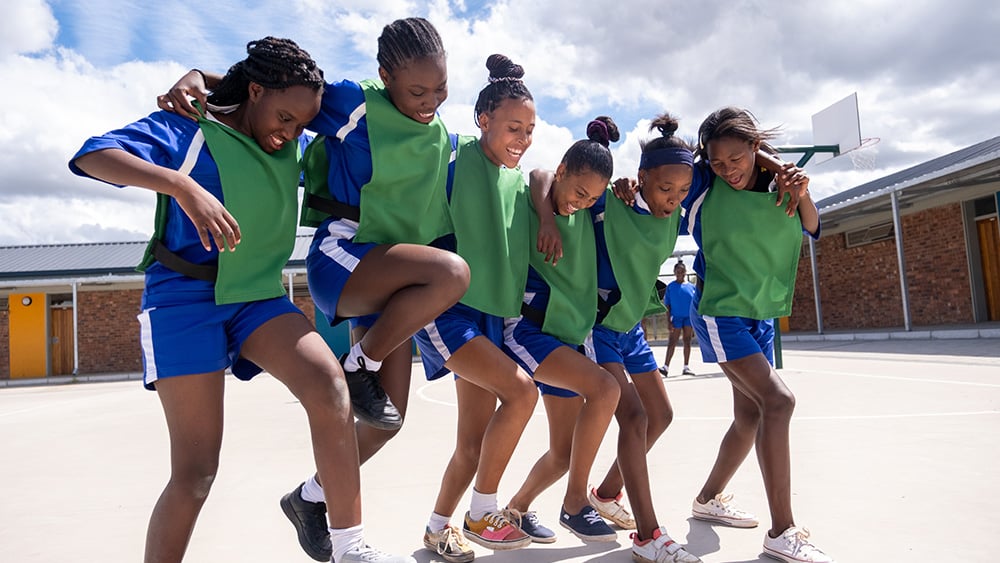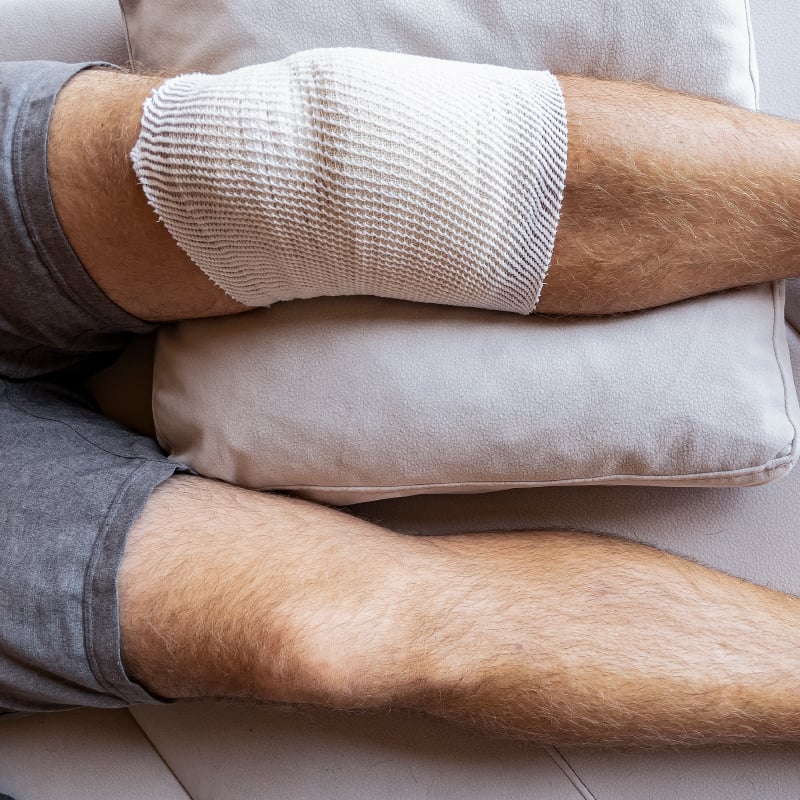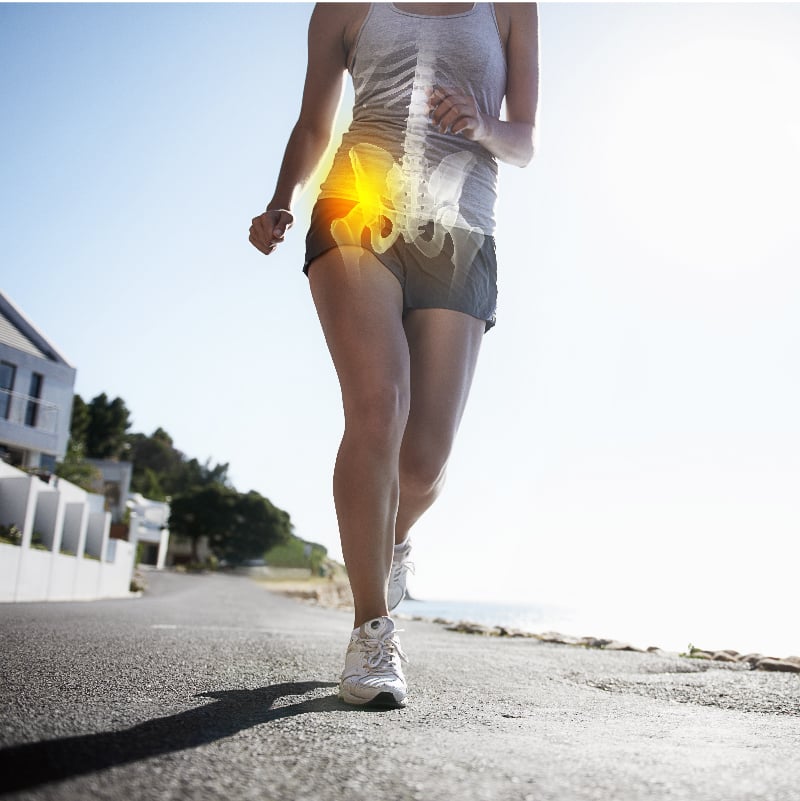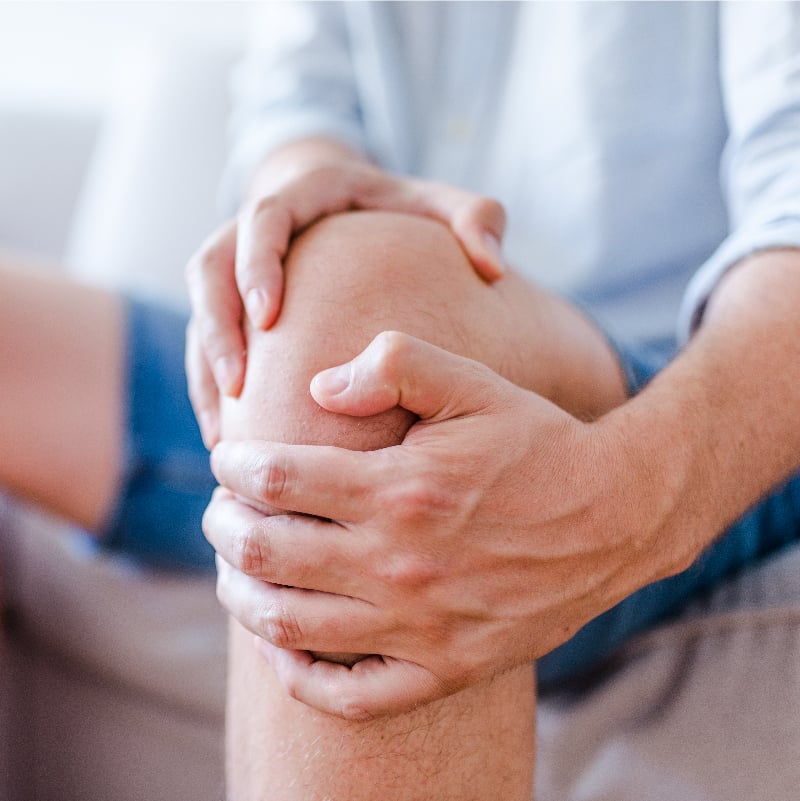Key Takeaways
- Achilles tendon pain ranges from mild to severe, and helps to tell what type of injury might have occurred.
- People between the ages of 30-50 who play high-impact sports are most likely to suffer an Achilles tendon injury.
- Depending on the type of injury, treatment can range from physical therapy to surgery.
Problems with the Achilles tendon are common and treatable. With that in mind, they are like many other health conditions, in that, if you don’t seek out treatment, they will only get worse.
Zach Zmich, MD, is an orthopedic surgeon specializing in foot and ankle care, and explains what to do if you believe you may be experiencing pain in your Achilles tendon.
What is the Achilles tendon?
The Achilles tendon is the thickest tendon in the human body. It is a strong, fibrous cord that connects the calf muscles to the heel bone. The tendon stretches from about the middle of the calf down to the top of the heel.
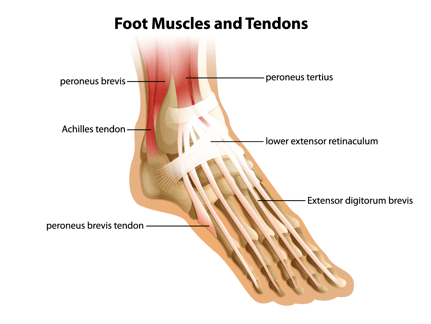
It helps to facilitate the movements that require pushing off the foot like running, walking, and jumping. The Achilles tendon can endure a great deal of use – especially if a person enjoys high-impact sports such as running, soccer, or basketball. It also sees 4-6 times a person’s body weight, and has areas with decreased blood supply. This makes it susceptible to chronic injuries due to overuse as well as sudden, acute ruptures.
Causes of Achilles tendon pain
Pain linked to the Achilles tendon can range from mild and chronic aching, to severe – and sometimes sudden – discomfort. The types of pain are often telling as to what type of condition or injury might be associated with that pain.
Sudden increases in the amount or intensity of daily exercise along with calf muscle tightness can put added stress on the Achilles and lead to acute pain and swelling called tendinitis. Even in well-conditioned athletes, repetitive impact activities and muscle imbalances can lead to swelling and pain in the tendon associated with tendinopathy or breakdown of the tendon.
In many cases, there is soreness and stiffness that starts early in the morning and gradually lessens as the day goes on. It can also start as a person begins to exercise and then slowly fade as they continue the activity. This pain can be mild, but if the offending activity continues, this often gradually gets worse.
On the other hand, Achilles ruptures are typically associated with a sudden severe pain. Some people experience a pop. Many people are convinced someone hit them in the back of the ankle, even if no one is nearby.
“Whether the pain is mild or severe, it is not something that should be ignored or put off,” Dr. Zmich said. “Without consulting your doctor and treating the pain, it has the potential to get worse. Specifically, an untreated Achilles tendon rupture can be devastating. Prompt evaluation is crucial in keeping both nonoperative and operative options open. Consulting your primary care provider or requesting a referral to an orthopedic specialist is strongly advised. Achilles tendon ruptures are also a common injury that can be seen in our urgent cares.”
Risk factors for Achilles tendon injury
There are several things that increase the likelihood of developing an injury to the Achilles tendon.
- Men are more likely to injure their Achilles tendon than women
- Age (30-50 is most common)
- Obesity (carrying more weight places more stress on the tendon)
- High-impact sports (i.e., running, soccer, basketball, tennis, or other sports that involve sudden starts and stops)
Preventing and treating Achilles tendon pain
In some cases, while preventing an injury may not be possible, lessening your risk of further injury can be done through practices such as dynamic stretching and physical therapy.
Prevention
Ensure you warm up properly before exercise. A dynamic stretching or movement routine before starting an activity can be a great way to prime the muscles, tendons, and joints. After finishing the activity, routine static stretching of the calf muscles can increase range of motion. While no definitive evidence has shown that stretching decreases the risk of Achilles tendon ruptures, a lack of range of motion in the calf muscles and Achilles is associated with many chronic Achilles tendon injuries.
Learn more: Running stretches & exercises to avoid pain
Take some time to rest if you need it. Time off is just as important as the time you put in. Overworking your body can lead to injury.
Ice the area where you’re feeling pain. Using ice will reduce inflammation and help to ease the aching. Try to apply ice for approximately 20 minutes after finishing an activity.
Using non-steroidal anti-inflammatory drugs (NSAIDs) such as ibuprofen or naproxen may help to reduce the swelling and pain.
Cross training with other sports can relieve stress on your Achilles tendon, and also train other muscles to avoid muscle imbalances. Low-impact sports such as biking or swimming can give you the cardio you may be looking for without causing extra stress on the tendon. Full body strength training can also relieve your calf muscles and Achilles tendon from being overworked.
Treatment
Seeking out physical therapy may help to reduce the pain linked with Achilles tendon injuries. Our physical therapists can help you perform certain stretches and exercises, and may also have more specific therapies to help to build up the strength of the muscles surrounding the tendon – and assist with strengthening the tendon itself.
With Achilles tendon ruptures, it is critical to be seen by a provider quickly. If a patient with a ruptured Achilles tendon is seen in a timely fashion, they are more likely to avoid surgical interventions. In some situations, surgery may be recommended and typically needs to happen within 1-2 weeks of the injury.
All options can be discussed with an orthopedic provider who will take all your various health factors into consideration before making a decision with you.
“The Achilles tendon is such a crucial part of helping the body move,” Dr. Zmich said. “We will do everything we can to ensure you have the best treatment options available and help you meet your goals.”




